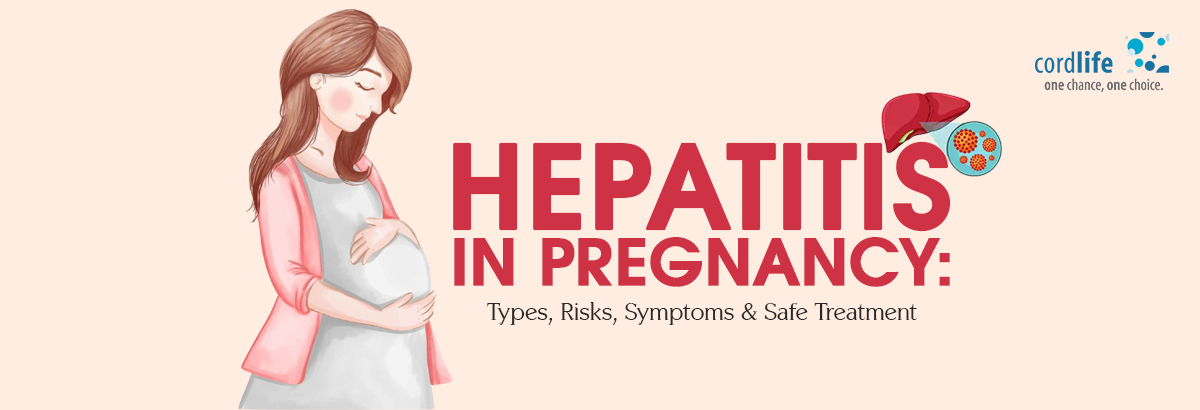Table of Contents
Hepatitis during pregnancy can have severe implications for both the mother and the baby. It may jeopardise the foetal health, leading to complications premature birth, low birth weight, or even transmission of the disease. In this blog, we will learn more about the causes of these diseases, how they are transmitted, and the precautions that can help avoid them during pregnancy.
Types of Hepatitis Affecting Pregnant Women
Hepatitis A
Hepatitis A is a Liver disease in pregnancy caused by the Hepatitis A virus (HAV). It is essentially a foodborne disease.
- Risks: It is associated with mild illness and does not pass from a mother to the foetus, making it quite harmless.
- Symptoms: The Symptoms of hepatitis in pregnant women like, nausea, stomach ache, jaundice, muscle and joint pain, diarrhoea, and fever, must be considered seriously to prevent future complications.
- Prevention: Good hygiene and Hepatitis A vaccination can prevent it.
Hepatitis B
It is caused by the Hepatitis B virus (HBV) and can proliferate into a chronic disease in infants and young children. Transmitted through infected bodily fluids blood, semen, and vaginal fluids, it can even lead to liver cancer.
- Risks: Can hepatitis be transmitted from mother to baby? Yes, a mother who is affected by it can infect her baby during the birthing process, but not through breastfeeding.
- Symptoms: Chronic hepatitis B often progresses without noticeable symptoms apart from mild jaundice, dark urine, fever, abdominal pain and loss of appetite.
- Prevention: Simply managing hepatitis B during pregnancy with vaccination can protect the newborn.
Hepatitis C
Infected blood with the Hepatitis C virus (HCV) can be transmitted through shared needles or household items.
- Risks: Though not spread by casual contact or breastfeeding, Hepatitis C during pregnancy has the potential for foetal transmission and chronic infection in the offspring, including the risk of premature death due to hepatocellular cancer.
- Symptoms: The symptoms in the later stages are fatigue, jaundice, pale stools, high fever, nausea, abdominal pain, vomiting, and joint pain.
- Prevention: The symptoms in the later stages are fatigue, jaundice, pale stools, high fever, nausea, abdominal pain, vomiting, and joint pain.
Hepatitis E
Hepatitis E pose a risk of acute liver failure in late pregnancy. The virus (HEV) is spread through the fecal-oral route, often transmitted via contaminated water or undercooked meat. Serology, antigen, or PCR testing of serum or stool detects the presence of this virus.
- Risks: Hepatitis E infection during the second and third trimesters can be fatal for both the mother and the unborn baby. Pestering questions like, Is hepatitis dangerous during pregnancy? might receive grave answers on pregnant women being more susceptible to Hepatitis E, and the infection can lead to liver failure, miscarriage, stillbirth, and maternal death.
- Symptoms: Most pregnant women experience mild, flu-like symptoms.
- Prevention: Maintaining proper hygiene and sanitation, consuming thoroughly cooked food, and getting vaccinated are the ways to prevent Hepatitis E.
How to Check for Hepatitis Before Planning a Baby?
The Risk of hepatitis infection in pregnancy cannot be overlooked; it is, therefore, mandatory for both partners to get themselves tested, especially for Hepatitis B and C. Conscious efforts go a long way in preventing hepatitis transmission during childbirth; it not only protects the parents but also gives the baby a fair chance to lead a healthy life.
How to Treat Hepatitis in Pregnant Women?
A detailed discussion with the healthcare provider and following each step of the prenatal care enables screening of Hepatitis A, B, C, and E infections during early pregnancy. Hepatitis A requires dexterous handling of symptoms, coupled with adequate rest, a balanced diet, and plenty of fluids. Hospitalisation and vaccination may be necessary in severe cases.
Constant monitoring of liver functions and getting a Hepatitis B vaccine is safe before or during pregnancy, provided the vaccination series is completed. Even infants born to HBsAg-positive mothers ideally receive a birth dose of the hepatitis B vaccine and hepatitis B immune globulin (HBIG) within 12 hours, followed by the complete vaccine series.
The Hepatitis C antiviral treatment during pregnancy is a risk-based screening for Hepatitis C in pregnant women, enabling early Diagnosis of hepatitis during pregnancy. Cesarean delivery is not recommended to thereby reduce the risk of vertical transmission.
A different approach is adopted for treating different types of hepatitis. Expectant mothers with Hepatitis E are offered supportive care and kept under strict supervision, as there is no specific Safe treatment for Hepatitis E.
Conclusion
But for the modern medical approach, preventing hepatitis transmission during childbirth would have been difficult for millions of women. Mandatory screening, early detection, proper vaccination, thorough monitoring, and prenatal checkups enable couples to welcome healthy babies.
